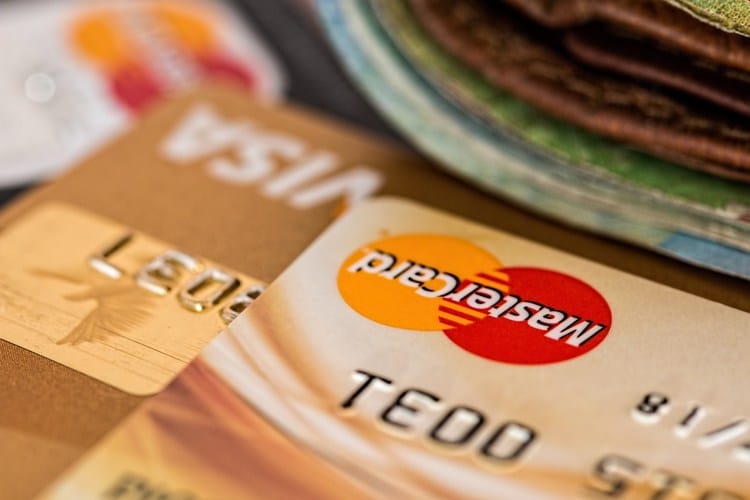Do you ever think to yourself that you know you need to make a change with the way your family finances are operating? You recognize your way of doing things isn't working anymore, but you have no idea where to start.
You are not alone. This is a topic that a lot of people out there really want to know.
Millions of people feel the same way.
Managing family finances is not an easy task for many people. Especially if there are reasons that your current situation is changing. Budgeting for a new baby, moving, kid going to college, etc.

Keep reading to get some helpful hacks to get your family finance situation going in the right direction.
Personal finance is a hard topic to ask anybody else because that can be a little invasive. So it's super difficult to find out where we are on the spectrum.
Are we doing well at managing our own family's finances compared to other people? Are we really far behind on where other people in the same age range are with managing family finance? There are some easy basic solutions to managing your family's finances. That way you can be sure you are on a great path.
Success of how well you are managing your family's finances is measured solely on if it is working for you or not. Nobody else can tell you exactly what processes to use when managing your monies.
Every household is different, but there are a lot of guides that help a ton. Being knowledgeable of the do's and don'ts of great money management skills will go a long way for you.
How To Get Your Family Finances in Shape
Here are some hacks to help get your household finances in shape.
- How To Get Your Family Finances in Shape
- 1. Implement Basic Math
- 2. Use Averages
- 3. Contribute to your Savings Account Automatically
- 4. Pay more than Credit Card Minimums
- 5. Have a 'No Spend Day'
- 6. Unsubscribe from Retail Emails
- 7. Cut out extras
- 8. Check it off
- 9. Pay Yourself First
- 10. Pre-Spend Your Money
- 11. Meeting with a Financial Planner
- Related Posts:
- Andy Masaki
1. Implement Basic Math
This is an important step in money management. Honestly, I do simple 1st-grade math for every month, to manage my family's finances.
I have a spreadsheet of our bills. It includes:
- The bill
- The amount of the bill
- The day it drafts out of our bank account
When the bills come in my email or in the mail, I update my spreadsheet right away with the amount due for that bill for that month. The spreadsheet is actually on my iPhone. I use Google Drive and sync it to my phone so my spreadsheet is readily available for edits.
Then I simply add up all the bills. I get a total. This is your total expenses.
Then I total our income for the month.
Now I subtract. Subtract income minus expenses. Voila!
That is the magic math that I use. Works like a charm and works every time.
It's quite an easy concept.
Don't forget when you are adding up your bills, to include your gas, groceries, eating out and savings account additions.
Those are bills too ya know 🙂
2. Use Averages
A lot of people forget that expenses such as gas, eating out, groceries, etc, are large bills that “go out of your bank account” every month.
Be sure to include these on your spreadsheet.
So many times I hear people say they don't know where their money is going because there is more month than money.
This is a big reason why. They aren't accounting for the eating out, groceries and gas.
I know for me, these alone are large expenses for the month.
In the beginning, when I was trying to figure out a system that worked for our family, I used a simple tactic that really helped a lot. I still use it from time to time now. At the end of each month, I would add up all our purchases in 3 categories.
Eating Out, Gas, Groceries.
Then, I wrote those numbers down and would do that again at the end of the next month.
After a few months, I took an average. So, I took the number in each category, and added them up and divided by how many months I had a figure for.
That is the number to this day, that I use on my spreadsheet for bills.
I don't look at my individual bills as much anymore. I primarily used the add function on my spreadsheet. I just need to know how much money is going to exit out of my bank account that month. And then, I subtract expenses from our household income. Now I know what we have leftover.
Like I mentioned before, don't forget to put a savings account on your list of bills. That needs to happen.
3. Contribute to your Savings Account Automatically
Contributing to your savings account is one of the most important things that you can do for your family's financial situation.
It does not have to be a lot of money that you are putting in. It just has to be something. That way you are in a good habit of putting some money away.
When it comes to a time that you can put a higher amount away, you will already be in the habit.
A lot of times, people do not necessarily put money into savings. They leave it in their checking account and just keep a higher balance in there.
Keeping your savings separate, and in a different account is a good practice, and it's something you should think about if you are already not doing that.
Some banks allow you to automatically draft money from your checking account into your savings account.
You can pick what day of the month the draft happens, and what amount. It's great because it's out of sight, out of mind. You don't have to consciously log into your online banking to make a transfer. It is automatically going to happen.

4. Pay more than Credit Card Minimums
This one is self-explanatory. If you can swing it, pay more than the credit card minimums. That way your principal balance will start to come down.
A lot of credit cards have such high-interest rates, that when you pay the minimum, you aren't making much headway on the actual balance.
If you can, open a 0% credit card and transfer your balance to it. Just beware of high balance transfer fees.
5. Have a ‘No Spend Day'
I love these days, but they do not come around often enough!
If you can eat all your meals at home one day, you are doing great.
Plan a place to have quality family time for your family that doesn't involve spending money. Maybe take a walk, take a ride in the car, etc.
There are a lot of ideas out there. If you can have a few “no spend” days, you will want to repeat it and that can only help your family's financial situation.
CNBC has a motivating article on how someone saved a ton of money by having “no spend” days.
Just do not be fooled into thinking you can spend more on another day because you saved money on a different day. Lol.
6. Unsubscribe from Retail Emails
When you are trying to manage your family finances better, temptation with enticing retail emails does not help. All it does is make you want to buy!
Their marketing teams really do a good job of making you want to shop when you open their email. Or even if you see their store name in your inbox, it still tempts you to want to shop.
I recommend unsubscribing from a majority of them. If you want to shop, you will shop.
You do not need a constant reminder of the sales, deals and beautiful products every time you open your email. You are trying to get your family's finances in shape, and this is a good practice.
7. Cut out extras
Sometimes you have to come up with some creative financing. If you see on your spreadsheet that there are some items that you could remove from your spreadsheet, that would be a great feeling.
So do it. Give your money management a makeover and slash unwanted expenses.
Is it gourmet coffee and eating fancy lunches at work that's becoming a hefty bill?
Is it credit card payments? If it's credit card payments, open a 0% interest credit card and balance transfer for a small balance transfer fee. That way you are making headway on your principal balance.
Is it too high of a grocery bill? There are tons of ways to cut money spent at the grocery store. You just have to meal plan, write out your shopping list and don't shop more than once a week.
Once you see what all your bills are, on paper, then you can get a good idea if you are impulsive spending on too many extras.
After you establish if you are spending too much on “extras“, then you can cut some of those indulgences out. Just until your family's finances are managed better. Then you can add them back in, as you can.

8. Check it off
Once a bill comes out of your bank account, put a checkmark next to that bill on your spreadsheet.
This way, you can easily add up how much more money is going to go out of the account that month. This is nice because, at the snap of a finger, you can have a number for how much more money for bills will exit the account.
There are many times I have wanted to know at a moment's notice, how much more money will leave my bank account this month. With the spreadsheet, I can easily add it up quickly.
This is quite handy around the holiday shopping season, and knowing what not to waste money on.
9. Pay Yourself First
This is a good practice to adopt. This means that putting money into your savings account every month.
You work so hard to pay other creditors, so why not pay yourself?
A savings account is so valuable because it is there as emergency funds.
How nice of a feeling is that?
So how do you put money into savings when you already come up short in the month?
Pay yourself first, meaning put your savings account as a bill on your excel spreadsheet.
This is the second item on my own list, next to my mortgage. No need to overwhelm yourself thinking that if you can't put $50 away then there's no point.
If you can do $10, do $10 and don't eat fast food one day.
You will start to get into a great habit of putting money aside and not spending it. As you get better at managing household finances, you will be able to put away more.
Saving money takes practice. It's just like anything else!
10. Pre-Spend Your Money
Huh? Let me explain.
When you use a spreadsheet to see what your monthly bills are, add them up and get a total dollar amount.
When you see that total dollar amount, that is essentially “pre-spending” your money. You already know where some of your money is going to, for that month. This is so very important that you take a look at this.
Otherwise, you have less of an idea where your money is going during the month.

11. Meeting with a Financial Planner
It is always a good idea to meet with a financial planner to manage your household finances. They will make recommendations for investment accounts, retirement, college savings accounts, etc, based on your situation.
You are never too young or too old, to take this step.
Don't think that because you may be lean on money during the month that you can't still partake in putting money into retirement or college savings.
There is always a way to put a few dollars away.
You can find a financial planner by:
- Word of mouth
- Asking your friends
- Searching the internet
I strongly recommend a financial planner. They will help you with things that you were not doing on your own. Check out this article from the balance.com on how to find the perfect financial planner.


Andy Masaki
Guest Author
Andy is a blogger at Penny Less Dad and a financial writer associated with the Oak View Law Group. He is a debt expert and a member of several online forums where he shares his advice as well as tips to lead a financially independent life.

Leave a Reply